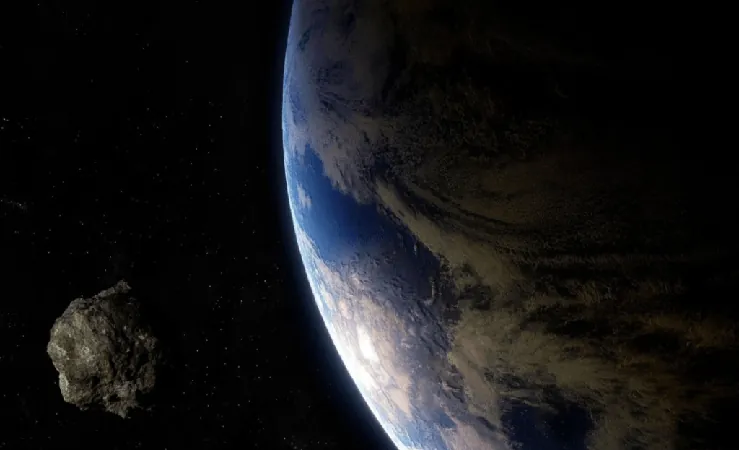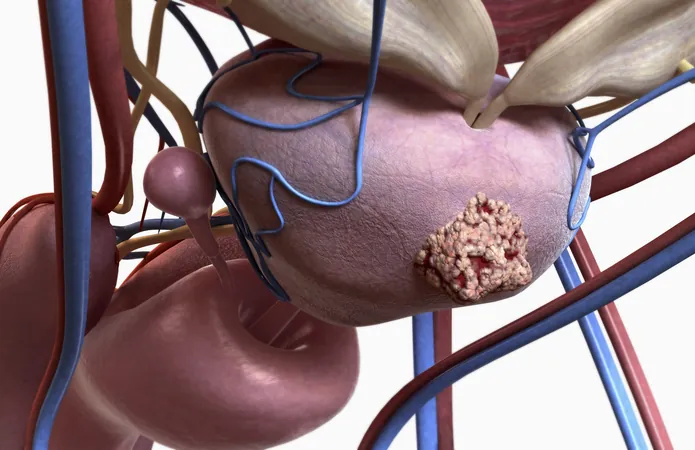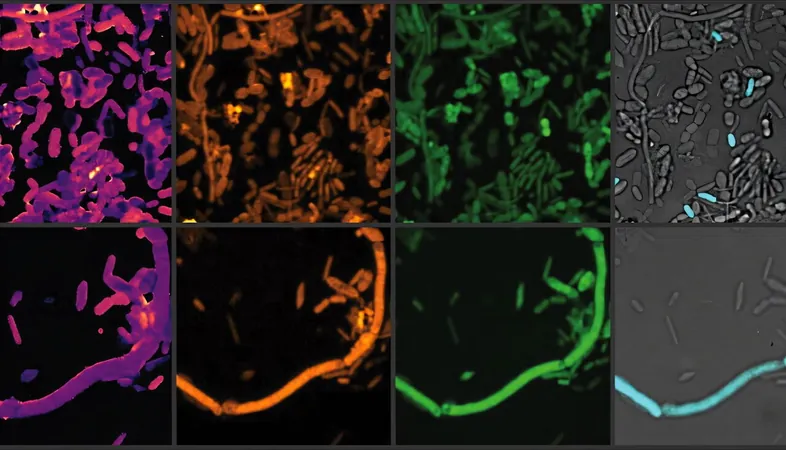
Groundbreaking Discovery Unveils the Source of Most Meteorites Hitting Earth
2024-11-20
Author: Jia
In a remarkable scientific breakthrough, researchers from Charles University in Prague, alongside a collaborative team of scientists from the USA, France, and the European Southern Observatory, have pinpointed the origins of a staggering 70% of meteorites that descend upon Earth.
Their findings, released through the university's Faculty of Mathematics and Physics, reveal that three distinct families of asteroids—Massalia, Koronis, and Karin—are primarily responsible for these celestial visitors.
The team employed advanced computer modeling techniques at the Institute of Astronomy to trace the origins of meteoroids, which, after forming through countless collisions among asteroids orbiting the Sun millions of years ago, eventually become meteorites.
These collisions, occurring over tens of millions of years, have led to the production of meteoroids that orbit independently around the Sun before occasionally crossing paths with our planet.
According to the study published in the prestigious journal *Nature* in mid-October, these meteoroids originated from dust that predates Earth itself, emerging just two million years after the Sun was formed approximately 4.567 billion years ago.
The scientists explained that the asteroids from which these meteoroids arise can extend up to 10 kilometers in size, and their orbits intersect once every few million years, generating fragments that contribute to the meteoric fall we observe.
Professor Miroslav Broz from Charles University elaborated that the comprehensive model developed by Czech researchers details the dynamics of both main belt asteroids and their near-Earth counterparts, while also addressing the origins of various types of meteoroids.
He noted significant fragmentation events: the first occurrence transpired roughly 40 million years ago, followed by another about 7.6 million years ago, and the most recent one approximately 5.8 million years ago.
The finding has profound implications, showcasing how these asteroid families—Massalia, Koronis, and Karin—are not only critical to understanding meteorology on Earth but also crucial components of our solar system's history.
The research indicates that these meteorites represent the same types that existed during the early development of our planet and even during the dawn of humanity.
Additionally, astronomers Michael Marsset from the European Southern Observatory and Pierre Vernazza from the University of Aix-Marseille played pivotal roles in this research, utilizing spectroscopy to classify asteroids based on their mineral content, a technique that mirrors the analysis of actual meteorites.
With this groundbreaking study, we gain deeper insights into the ancient origins of the materials that have shaped our Earth, linking our planet to its celestial neighborhood in ways that were previously unfathomable.
Such discoveries not only enrich our understanding of space but also invite further exploration into the relics from our solar system’s past.
Are we on the cusp of uncovering even more secrets from our cosmic surroundings? Stay tuned!




 Brasil (PT)
Brasil (PT)
 Canada (EN)
Canada (EN)
 Chile (ES)
Chile (ES)
 España (ES)
España (ES)
 France (FR)
France (FR)
 Hong Kong (EN)
Hong Kong (EN)
 Italia (IT)
Italia (IT)
 日本 (JA)
日本 (JA)
 Magyarország (HU)
Magyarország (HU)
 Norge (NO)
Norge (NO)
 Polska (PL)
Polska (PL)
 Schweiz (DE)
Schweiz (DE)
 Singapore (EN)
Singapore (EN)
 Sverige (SV)
Sverige (SV)
 Suomi (FI)
Suomi (FI)
 Türkiye (TR)
Türkiye (TR)